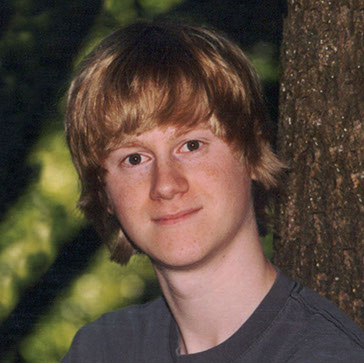Are you or is someone you know considering suicide?
In La Crosse Dial 2-1-1
Nationally Dial 1-800-784-2433
If tears could build a stairway and memories a lane, we’d walk right up to heaven and bring you home again.
MEET JOE

JWJJ will not be holding it's annual fund raising event this year due to Covid-19. We wish you all well.

Suicide Warning
Signs
Most people that take their own lives exhibit one or more behavioral indicators evident in the things they say or do. Knowing how to recognize them in others can save lives.
- Threatening or talking about suicide
- Depression for an extended period of time
- Statements of hopelessness
- Giving away prized possessions
- Preoccupation with death and dying
- Trouble eating or sleeping
- Staying in bed or sleeping for extended periods of time
- Sudden changes in behavior
- Saying goodbye
- Going into isolation
- Purchasing a firearm
- Previous attempts of suicide
- Taking unnecessary risks
- Loss of interest in personal appearance
- Increased use of alcohol or drugs
Source: American Academy of Child &
Adolescent Psychiatry
What Can I do?
p
q
r
Question the person about suicide.
Do they have thoughts, or plans of suicide? Don't be afraid to ask and take the initiative.
Persuade the person to get help.
Listen carefully. Then say "Let me help." Or "Come with me to find help."
Refer for help. If a child or adolescent, contact an adult, a parent. Call a medical professional, your minister, rabbi, tribal elder, teacher, coach or counselor. Call the resource numbers on this website.
To Save a Life
- Realize someone might be suicidal
- Reach out. Asking the suicide question DOES NOT increase risk.
- Listen. Talking things out can save a life.
- Don't try to do everything yourself.
- Get others involved.
- Don't promise secrecy and don't worry about being disloyal.
- Call your mental health center, local hot-line, or emergency services.
Read more...
Bob Hillary, former administrator for Behavioral Health Services at Mayo Clinic Health System – Franciscan Healthcare, is a
member of the La Crosse Suicide Prevention Initiative (SPI). After learning about
QPR, he was anxious to implement the
program. “We now require anyone who
is formally involved with Behavioral
Health Services, both inpatient and
outpatient, including our vice presidents
responsible for those areas, to take the
QPR training.
QPR training addresses one of the
greatest hurdles to suicide prevention —
peoples’ general discomfort with talking
about the subject.
“I think anyone who has taken QPR
training feels like they have the tools to
directly impact someone; to ask the right
questions in the right way to get a candid
response,” says Bob. “Studies show when
you ask someone if they’re thinking about
suicide, it’s not insulting. It opens the door
to getting help. Stepping over that threshold
is a crucial part of prevention.
Read more...
As parents, be aware of the signs of suicide, including the extra red flags to watch for in teens. It’s a myth that people who complete suicide don’t warn others. Eight out of 10 people who kill themselves have
given definitive clues of their intentions. They leave numerous hints and warnings to others, though some of their signals may be nonverbal or difficult to detect. Those who are thinking about suicide give clues as cries for help. Many seek someone to rescue them from their thoughts of suicide. It’s also vital for parents to know that the highest rates of suicide occur within about three months of an apparent improvement in a severely depressed state. An improved emotional mood doesn’t mean a decreased risk.
More Resources...

Joseph D. Clements
June 22, 1988 - March 10, 2008
The short dash between these dates represents so many wonderful, funny, special stories about this beautiful, smart, creative, caring young man.
Joe and all the other beautiful children would have stayed longer if they could.
Joe was just Joe.
“Joe was unique; he was his own person,” says his father, Dave Clements. “He was smart, loved music, and was a computer geek. He knew more about computers than his high school teachers. They told us that in parent teacher conferences.”
To the outside world, Joe was an ordinary teenager. But inside, he was battling depression. It proved to be more horrible than any of his loved ones could imagine. Joe committed suicide at age 19.
In a courageous effort to raise awareness and to prevent other families from experiencing the tremendous pain of losing someone to suicide, Dave Clements and his family – wife Carlynn and daughter Sarah - established the Joe Was Just Joe Foundation.
Suicide is a permanent solution to a temporary problem. If we can get people the help they need, we can prevent suicide. Within just two days of Joe’s death, we knew we had to do something to tell others about suicide and to stop others from making the wrong decision. About one year later, the foundation began in 2009. We named it ‘Joe Was Just Joe,’ because we were always saying that, "Joe is Just Joe". Joe was a very unique person.
For the past five years, we have visited schools and other organizations, and have assisted the La Crosse Area Suicide Prevention Initiative (SPI), a group that’s also worked diligently to raise awareness and hope in the community since 2004.
The Joe Was Just Joe Foundation helped to sponsor the first annual Suicide Summit, held for the past three years by SPI, along with an annual Suicide Awareness Walk each fall. Our foundation continues to be a major supporter of the summit. We also sponsor scholarships for people who want to attend the summit but cannot afford the registration fee. In 2013 we paid for 13 individuals to attend, many of who had lost a loved one to suicide.